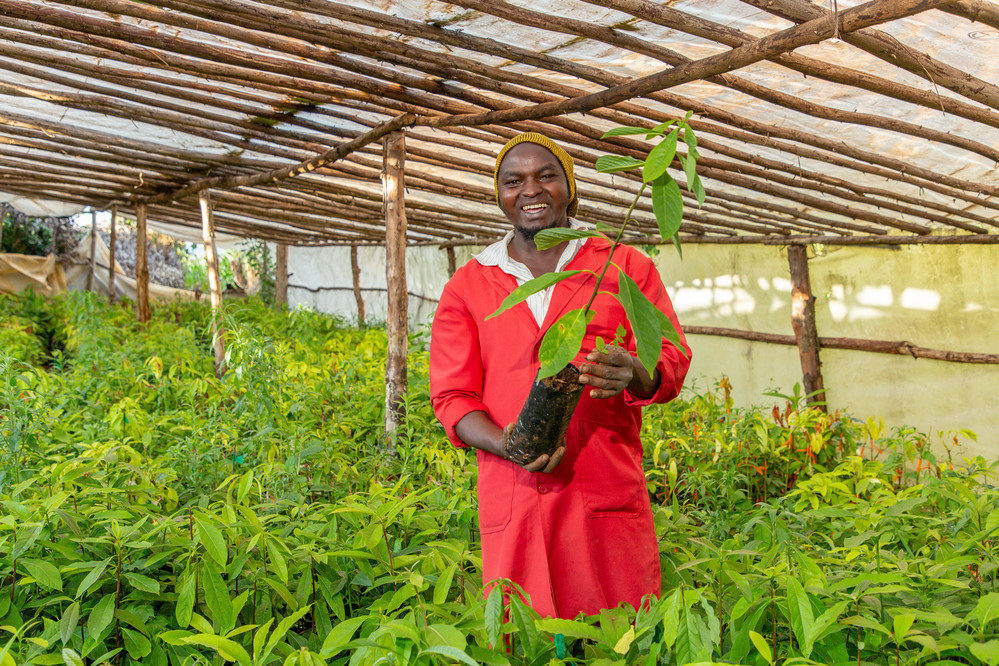The Smallholder and Agri-SME Finance and Investment Network (SAFIN) and ISF Advisors hosted over 250 agri-finance practitioners at a webinar on 05 April 2023 to discuss whether Business Development Services (BDS) currently offered to agricultural SMEs in Africa are cost-efficient and effective.
The session shared the key findings of a new study ‘Effectiveness and Efficiency of Business Development Services (BDS) for Agri-SMEs’, which was conducted by ISF Advisors in partnership with AGRA, the Agribusiness Market Ecosystem Alliance (AMEA), Agriterra, Argidius Foundation, SAFIN and Small Foundation. BDS has been an integral component of the toolkit used by development practitioners to support agricultural SMEs in Africa and beyond, but relatively little is known about their actual cost-efficiency and effectiveness. This study analyses data collected from 15 BDS providers serving 509 agricultural enterprises with cumulative revenue of US$ 415 million. It concluded that these services generate a positive impact on revenue, employment, and capital raised by SMEs. The report also highlights five key findings:
- Two main drivers have the largest impact on the cost and efficiency of BDS: the delivery model used and the initial size of client agricultural enterprises.
- Enterprises that paid a fee for BDS experienced a higher impact on their revenue, growth, employment, and other metrics, than those that did not.
- Segmenting client enterprises, starting with type and maturity stage, is key to determining the most relevant BDS that meet their needs.
- There is a significant gap in the cost of delivering BDS and the efficiency of outcomes between global and local providers.
- Several barriers and challenges exist in relation to the quality and rigor of data collection from agri-SMEs, assessment objectives and methodologies used by BDS providers, and alignment on qualitative definitions and terminology in the sector.
The session invited reflections from a funder and provider of BDS, as well as from other sector experts and practitioners. The following highlights emerged from the discussions:
- Provider perspective: Local contexts and global dynamics matter
Standardizing learnings or conclusions on the effectiveness and efficiency of BDS is challenging, as the reality on the ground is highly context-specific and must account for the different activities, development stages and geographies of each enterprise. Similarly, conclusions on the advantages of local BDS providers over global actors should be nuanced, as each can play an important role in the sector. For example, global providers are key to building local BDS markets and sharing lessons across countries and regions.
- Funder perspective: Strategic provider selection and the role of robust data
Key funders of BDS providers, like donors and philanthropic organizations, can play a dual role in developing the capacity of local providers to improve cost efficiency, while also working with other actors in the ecosystem to help build the local BDS sector. An openness to experimentation is key to finding the best approaches adapted to local contexts, and can be crucial to incentivizing SME participation. For example, by implementing various fee payment models for different enterprises. There is a need for more robust data collection across the BDS sector and for efforts to build the existing knowledge base to better assess what does and doesn’t work for more strategic deployment of resources in support of BDS providers and agricultural SMEs.
- Defining business development services and segmenting agricultural SMEs
Sector experts at the event raised questions about how BDS is defined and how this definition affected the segmentation of services in the study. The study’s data covered a 10-year period, including 5 years prior to the provision of BDS to targeted enterprises, to compare performance across different contexts following a like-for-like assessment methodology. This approach fully recognizes that the impact of specific services depends on the context and goals of each BDS provider. Business development support was segmented across different core buckets (i.e. core business support, access to finance, technology and product development, etc.) to draw conclusions on which types and approaches were most effective and/or efficient irrespective of any specific context.
- The relationship between cost and impact in the sector
Questions were also raised about the relationship between the cost and impact of BDS. A range of costs were considered for the study, from client acquisition to servicing and follow-up, to provide a holistic and comparable view of such costs. Participants provided insights on the importance of considering impacts and outcomes beyond cost , as different donors and providers often engage with larger objectives. For example, it is often the case that the global BDS providers target underserved markets, which may be more costly to serve, aiming to build local capacity. However, it is equally important for such providers to recognize when their efforts have been sufficiently successful and allow a shift to local BDS providers to avoid distortion of the local support ecosystem.
SAFIN will continue working on the development of knowledge and collaborative solutions related to business development services, its providers and their clients, as one of the network’s key thematic areas of focus. Going forward, SAFIN will engage its partners in the dissemination of the study, and work with them to identify opportunities to build on its findings.

